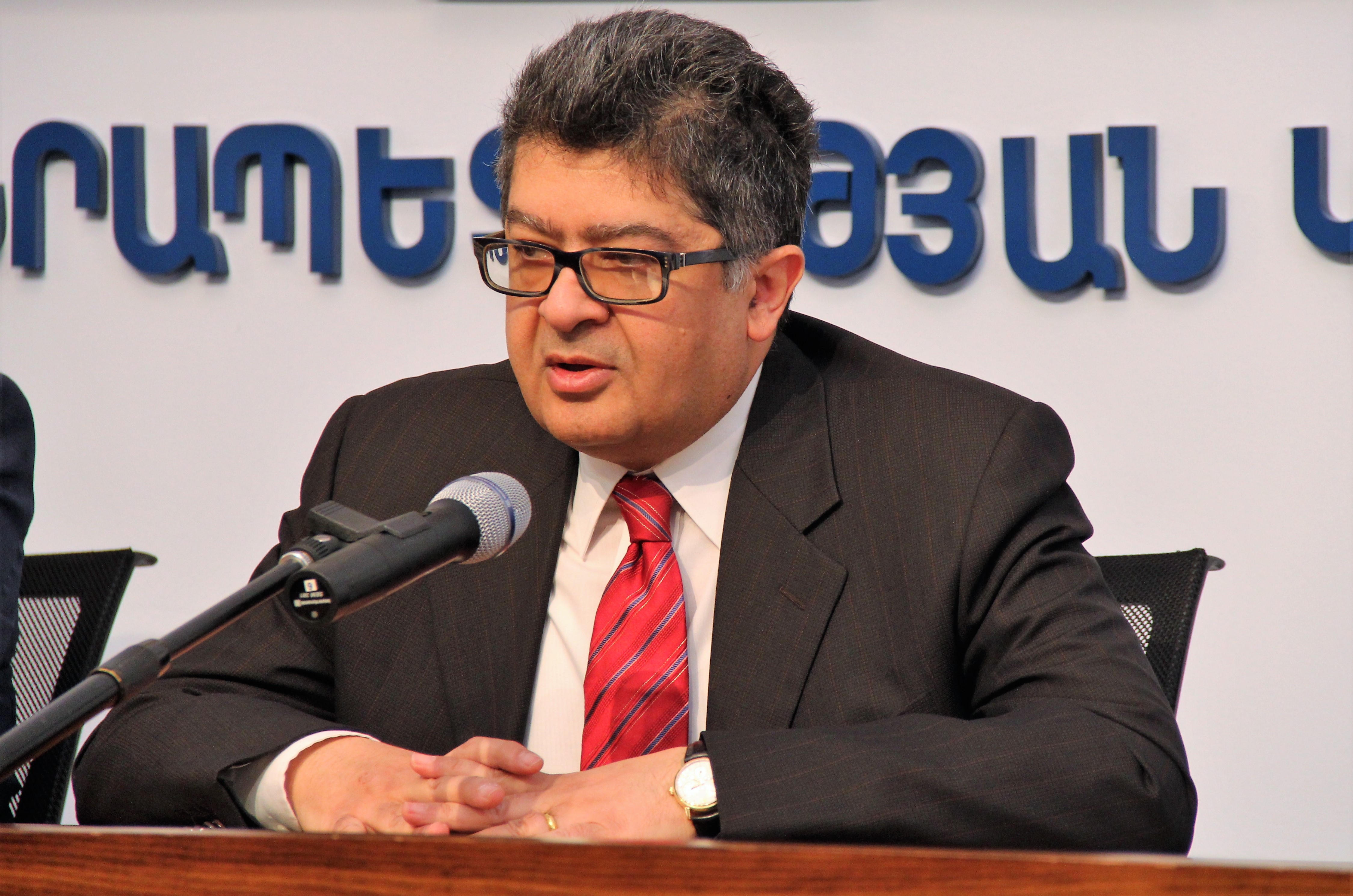Statement by Ambassador Vahram Kazhoyan at the OSCE Alliance against Trafficking “Everyone has a Role: How to Make a Difference Together”
OSCE Alliance against Trafficking “Everyone has a Role: How to Make a Difference Together”, 23-24 April 2018, Vienna
“Dear Madame Jarbusinova,
Mr. Moderator,
Excellencies,
Dear colleagues,
Ladies and Gentlemen,
It has been more than a decade that the Armenian Government actively fights against human trafficking and exploitation and during these years achieved tangible results. This has become possible also based on establishing collaboration among all the stakeholders -state civil society and international organizations dealing with the phenomenon.
Armenia is mainly a source country for men, women, and children subjected to trafficking in persons, specifically forced labor and sex trafficking of women and men. Human trafficking trends have changed in recent years, compared to previous years when primarily Armenian women were trafficked to Turkey and the United Arab Emirates (UAE) for sexual exploitation. Currently, the internal trafficking of women for sexual exploitation and men for forced labor has increased when compared to previous years. Nevertheless, Armenia is mainly a country of origin for women and girls subjected to sexual exploitation in the UAE and Turkey and, men subjected to labor exploitation in Russia and Turkey.
During these years we initiated numerous reforms on national level as well as actively cooperated with all International Organizations active in the field. At policy level, starting from 2004, Armenia has adopted five National tri-annual Action Plans (NAP). Currently, the fifth NAP for the period of 2016-2018 is underway.Starting with 2010 the activities are mainly directed towards maximum enhancement of the state’s efforts especially in the spheres of prevention and assistance, through establishing and strengthening the necessary structural, sub-legislative, financial bases, as well as through capacity building of the players active in the area.To ensure continuation of the current anti-trafficking policy the public awareness activities are implemented. The anti-trafficking Council sponsors the official website www.antitrafficking.am that was started by the “Audio‐visual Journalists Association”. The Council also holds annual media award competition for the best reporting on human trafficking.
In order to bring Armenia’s legislation in conformity with the requirements of Palermo Protocol, the Council of Europe Convention on Action against Trafficking in Human Beings and other international commitments, the Law on “Identification and Support to Persons Subjected to Trafficking in Human Beings and Exploitation” were adopted, as well as 7 by-laws aiming to ensure its implementation.
The law regulates procedures for identifying and supporting persons subjected to trafficking or exploitation, including foreigners and stateless persons, providing them with relevant residence status and safe return. The identification of victims and assistance provided to them is not conditioned by their cooperation with the law enforcement. The assistance includes also a lump-sum monetary compensation provided by State.
One of the important new features of the procedure for identification of victims of THB, which was introduced by the new Law, is the establishment of the Commission on identification of victims of trafficking in human beings and exploitation as a single body to confirm the status of the victim of human trafficking, which is comprised of both law enforcement and social partners on one hand and NGOs providing assistance on the other hand.It means that, any time that central government or local self-government bodies suspect that a person with whom they are dealing may be a victim of trafficking or exploitation, they refer the person to the Identification Commission.
The second very important point – The adoption of the Identification Law cancelled and replaced the National Referral Mechanism for Victims of Human Trafficking adopted in 2008 and re-arranged the identification procedure for trafficked persons. The changes were made following the visit of Madina Jarbussinova to Armenia and the consequent Report,the Council of Europe GRETA’s first evaluation report and our partners from the US Department of State, human rights monitoring bodies. Currently, in accordance with the new Law, victim identification is carried out in two stages: pre-identification and identification, it is totally de-linked from criminal proceedings and in no way preconditioned by the victim’s cooperation with law enforcement.
Multi-agency approach is a key of our success on all levels and all stages of victim identification, referral, assistance and reintegration as well as in case of organizing victims’ repatriation and safe return. Victims’ needs and interests are the basesfor the protection, whereasthe restoration of their rights are the main goals of this cooperation.
This became possible due to several reasons:
First of all, I would mention the Political will. Combatting human trafficking is one of the key priorities for the Armenian Government.
Secondly, it is on-going capacity building of all relevant actors dealing with identification, referral and reintegration which includes police officers, social workers, employment agencies, NGOs working with vulnerable groups, journalists, schoolteachers, local authorities, health care institutions, consular service officials, border guards, etc.
And finally, it is the coordination of efforts both horizontally and vertically including first line actors, anti-trafficking Working Group members and the Council representatives.
Moreover, on 4 June, 2015 the Annual Award Ceremony for Universal Rights was organized in Yerevan, which was attended by Armenian state officials, foreign diplomats, and representatives of non-governmental organizations and the mass media.During this Ceremony the Anti-TIP Working Group has been awarded the Universal Rights Award in the Government Reformer category. According to our international partners, the work of the Armenian anti-trafficking community can serve as a model of excellent cooperation and coordination among actors.
Due to effective, multi-stakeholder and multi-step collaboration and coordinated efforts of the working group during recent years, the repatriation of several Armenian citizens who have been trafficked abroad, became a reality.
Thank you.“

About the author